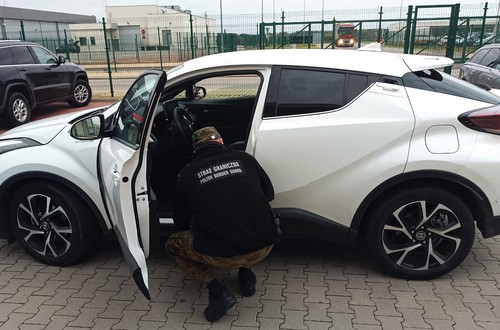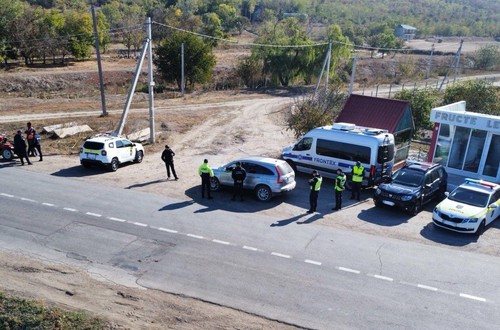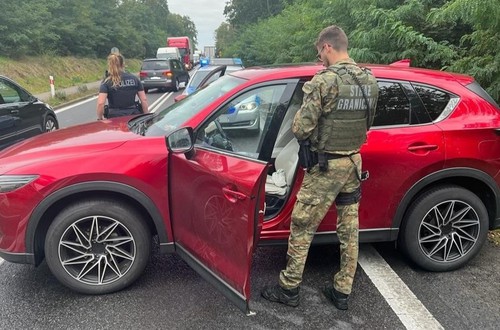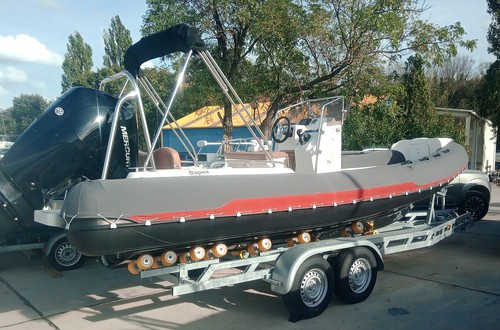- 505 stolen cars, nearly 2 000 stolen vehicle parts have been recovered in Frontex-led operation across Europe.
- In some cases, satellite systems were used to track vehicles with subsequent seizures and arrests of perpetrators.
- 18 500 database checks were performed during the action.
- 248 fraudulent documents have been recovered thanks to cooperation with Frontex experts.
Operation Mobile 6 took place on 9-20 October at the EU’s external land boarders, as well as at the borders in Albania, Bosnia and Herzegovina, Kosovo*, Moldova, Montenegro, North Macedonia, and Serbia. It involved around 400 law enforcement officers from 25 countries who carried out intensified checks in several locations along the EU’s external borders. Interpol and Europol supported the action with their expertise and access to databases. Thanks to Interpol and their contacts with police authorities outside Europe, several stolen cars were stopped in international ports.





